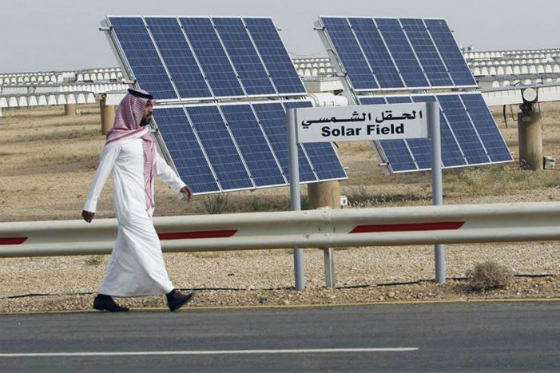The total value of GCC power projects in the pipeline stands at more than $320 billion at present, of which over $100 billion are linked to the renewable and alternative sources, according to a report.
In recent years, the interest in renewable energy across the GCC has been on the rise due to the surging demand for electricity which is set to hit 100GW within the next 10 years, stated Ventures Onsite, a project tracking portal.
Availability of resources, improved technology, decreased costs, among others, are factors which make investing in renewable energy easier than before, it added.
The region's power sector will continue to be active for the near future, said the report citing senior industry experts.
According to them, the GCC countries will require an additional generating capacity of 69GW between 2016-2020 through development of projects worth $137 billion.
"What is required for the next 10 years is 100GW, they added.
The spurt in demand is mainly due to the surgeing population, urbanisation, industrialisation, and the higher income levels.
According to the experts, about 85 to 90 per cent of future renewable energy projects will be utilizing solar energy.
The GCC certainly has an abundance of sunshine and space for developing large solar plants and already the UAE, Saudi Arabia and Kuwait have emerged as the biggest solar markets in the region, they said.
Other renewable sources used for projects in the region include wind, geothermal and biomass.
Alternative sources like nuclear, coal-fired, and hydrogen based power plants are also being developed or planned in the region, said the experts.
Government has launched several key initiatives to encourage diversifying the energy mix in the GCC such as setting up credible and time-bound energy targets backed by dedicated policies and sound regulatory frameworks, according to Venture Onsite report.
A major initiative from the UAE region in this direction has been the ambitious Dubai Clean Energy Strategy 2050. As per timelines set, seven per cent of Dubai’s energy will come from clean energy sources by 2020, 25 per cent by 2030, and 75 per cent by 2050.
Some of the programs already initiated to achieve these ambitious targets include the Shams Dubai which is aiming to have solar panels on every rooftop by 2030, usage of smart grid and smart meters, it stated.
In a similar manner, each of the GCC countries has set definite timelines with targeted capacity for incorporating renewable energy into their energy mix.
GCC countries are investing in the research and development for renewable energy with Masdar (UAE), Qatar Foundation, Sultan Qaboos University (Oman), Kuwait Institute for Scientific Research (KISR), and King Abdullah City for Atomic and Renewable Energy (KSA) taking the lead, according to the report.
Some of the major renewable energy power projects across the GCC are Al Abdaliya Integrated Solar Combined Cycle (ISCC) Power Plant in Kuwait; Taibah Integrated Solar Combined Cycle (ISCC) Power Plant (Saudi Arabia); Mohammed Bin Rashid Al Maktoum Solar Park (UAE); Miraah Solar Thermal Park (Oman); Shagaya Renewable Energy Complex – Phase III: 1150MW CSP Plant (Kuwait) and KA-Care – Alternative Energy Projects (Saud Arabia) and Sweihan IPP (PV) solar project (UAE), it added
Gulf Digital News
23 February























































